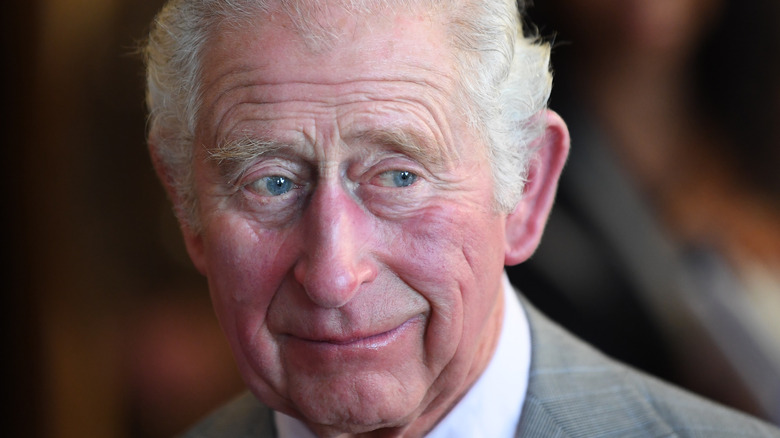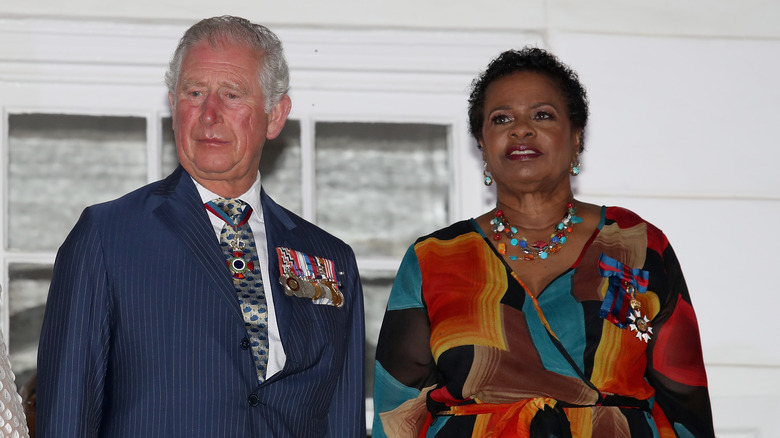The Real Reason Prince Charles Is In Barbados
All eyes were on Prince Charles this week as he jetted to the Caribbean island nation of Barbados. But the Prince of Wales wasn't there to go sightseeing, explore the botanical gardens, or relax by the island's sparkling blue waters. Rather, he was there to witness the end of an era in Barbados's history and the start of a new one.
Barbados was a British colony for more than 300 years before declaring independence from the United Kingdom in 1966 (via Reuters). However, the island opted to remain a British Commonwealth nation and kept Queen Elizabeth installed as the head of state, much as Canada, Australia, and other former British nations still do. This all changed in 2020, when the country opted to declare itself a republic. As such, Barbados will be a self-governed country, and its legislature just elected its first president: Dame Sandra Mason, who will be sworn in on November 30, 2021.
Charles was invited as the guest of honor at Barbados's week-long Republic Celebration event. He is expected to give a speech, an excerpt of which appeared in People. The address will emphasize the commonalities between the island and Britain, including the following. "Our common determination to defend the values we both cherish and to pursue the goals we share; and the myriad connections between the people of our countries — through which flow admiration and affection, co-operation and opportunity — strengthening and enriching us all," the heir to the throne is anticipated to say.
Barbados is ending an era of British rule
The British began colonizing Barbados in 1627, and the decades that followed saw the island grow to become a major producer and exporter of tobacco, cotton, and sugar cane. But that economic success came at a cost. As they did for America, Dutch merchants kidnapped thousands of African citizens from their homelands and forced them into slavery (via Barbados.org). The nation finally abolished slavery in 1834, after which former slaves served four-year apprenticeships on the plantations in exchange for free housing. In 1838, the emancipation of Barbadian slaves was official.
The forming of a republic and the election of a president mark the end of centuries of British rule in Barbados. President-elect Sandra Mason (photographed with Prince Charles in 2019) spoke on the issue at the opening of the country's parliament in 2020 (via People). "The time has come to fully leave our colonial past behind," she said. "Barbadians want a Barbadian head of state. This is the ultimate statement of confidence of who we are and what we are capable of achieving."
Charles' attendance at the independence festivities is not without controversy. A number of Barbadians object to the presence of any British royalty, given the country's history, and a protest was held the day before the presidential swearing-in. One of the protest's organizers told Barbados Today, "You are either breaking with the monarchy or you are not breaking with the monarchy. And if you are breaking with the monarchy, then you cannot invite them to be part of that process."

